Physics
Sign up for our newsletter
We summarize the week's scientific breakthroughs every Thursday.
-
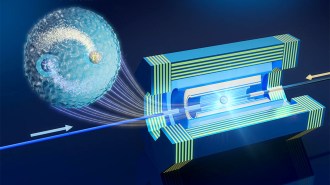 Particle Physics
Particle PhysicsScientists propose a hunt for never-before-seen ‘tauonium’ atoms
Made of heavy relatives of the electron, the exotic atoms could be used to test the theory of quantum electrodynamics.
-
 Quantum Physics
Quantum PhysicsTwo real-world tests of quantum memories bring a quantum internet closer to reality
Scientists successfully entangled quantum memories linked by telecommunications fibers across two different urban environments.
-
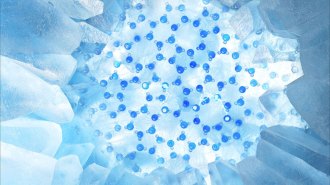 Physics
PhysicsHere’s how ice may get so slippery
Ice’s weirdly slick exterior might originate from the boundaries between two different types of ice that form on the surface of frozen water.
-
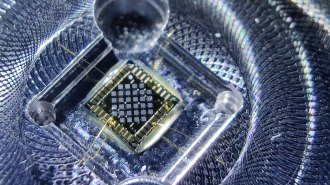 Particle Physics
Particle PhysicsThe neutrino’s quantum fuzziness is beginning to come into focus
An experiment studying the neutrino’s “wave packet” sets a limit on the uncertainty of the subatomic particle’s position.
-
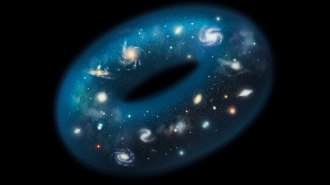 Cosmology
CosmologyThe universe may have a complex geometry — like a doughnut
Physicists haven’t yet ruled out the possibility that the universe has a complicated topology in which space loops back around on itself.
-
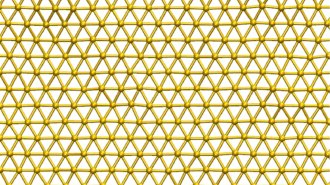 Materials Science
Materials ScienceScientists developed a sheet of gold that’s just one atom thick
Ultrathin goldene sheets could reduce the amount of gold needed for electronics and certain chemical reactions.
By Skyler Ware -
 Physics
PhysicsNewfound ‘altermagnets’ shatter the magnetic status quo
The newly discovered type of magnetic material could improve existing tech, including making better and faster hard drives.
-
 Physics
PhysicsSeparating science fact from fiction in Netflix’s ‘3 Body Problem’
Real science underpins much of the action in the show — along with a hefty dose of artistic liberty.
-
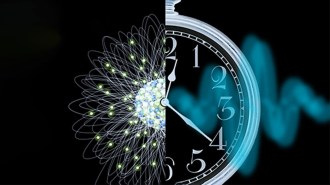 Physics
PhysicsPhysicists take a major step toward making a nuclear clock
By tweaking the energy of a thorium nucleus with a laser, scientists demonstrated a key step to building clocks based on the physics of atomic nuclei.
-
 Life
LifeDuring a total solar eclipse, some colors really pop. Here’s why
As a solar eclipse approaches totality and our eyes adjust to dimming light, our color vision changes. It’s called the Purkinje effect.
-
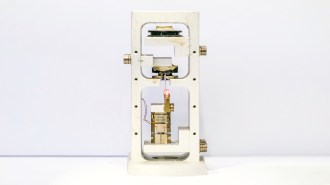 Physics
PhysicsA teeny device can measure subtle shifts in Earth’s gravitational field
No bigger than a grain of rice, the heart of the instrument is the latest entrant in the quest to build ever tinier gravity-measuring devices.
By Adam Mann -
 Psychology
PsychologyTimbre can affect what harmony is music to our ears
The acoustic qualities of instruments may have influenced variations in musical scales and preferred harmonies.